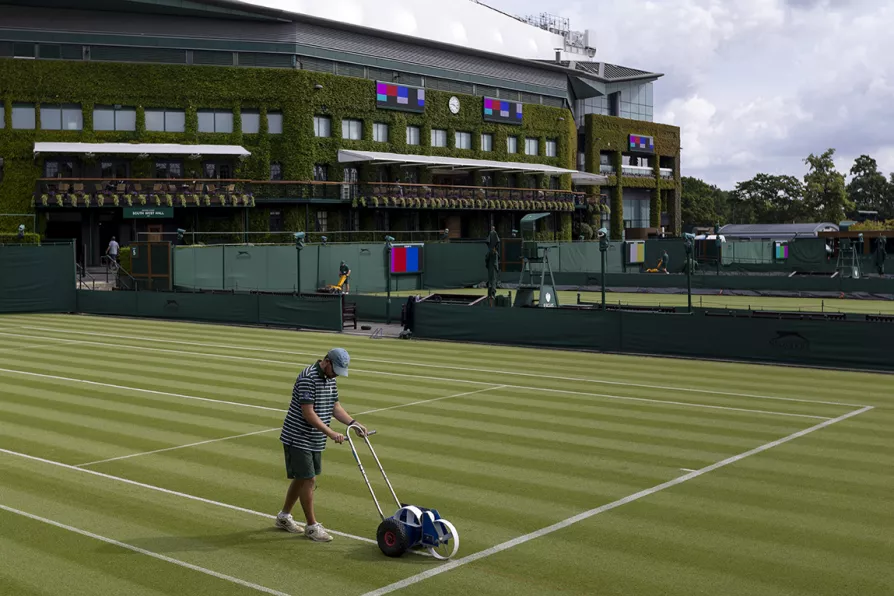
 Ground staff paint lines on Court 4 in front of the Clubhouse during a preview day at the All England Lawn Tennis and Croquet Club ahead of the 2024 Wimbledon Tennis Championships, June 13, 2024
Ground staff paint lines on Court 4 in front of the Clubhouse during a preview day at the All England Lawn Tennis and Croquet Club ahead of the 2024 Wimbledon Tennis Championships, June 13, 2024
LONGTIME British tennis reporter Richard Evans will be honoured this July when he is inducted into the International Tennis Hall of Fame in Newport, Rhode Island. Evans, who will be recognised as a “contributor” for his long service to the sport, joins some illustrious inductees from the recent and deeper past including Andre Agassi, Chris Evert, Martina Navratilova and Rod Laver.
Evans wrote for the Evening Standard, the former Evening News, The Sunday Times and numerous other magazines and newspapers and provided radio commentary, including play-by-play at Wimbledon. At 85, he is still travelling the tennis circuit and was covering the French Open in Paris when we spoke, before going on to Wimbledon.
Evans fell into tennis more or less by accident — his beat was mainly football, cricket and rugby when he began his career in London as a 17-year-old with Hayter’s news service. But in 1960, at 21, he joined the Evening Standard and was abruptly assigned to ghost-write American Althea Gibson’s Wimbledon coverage.

Still the only black man to win the US Open tennis title, a statue of the legendary champion, Arthur Ashe, is now the only one remaining on Monument Avenue in his Richmond, Virginia hometown, where confederate leaders of the Civil War were also once displayed, writes LINDA PENTZ GUNTER

Tennis icon set to become oldest singles competitor at Flushing Meadows since 1981 after receiving wild-card entry — yet another historic moment in a career already filled with them, writes HOWARD FENDRICH











